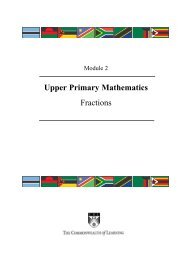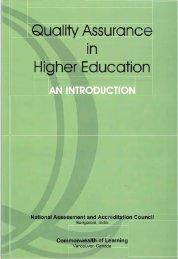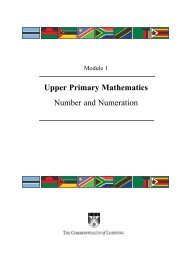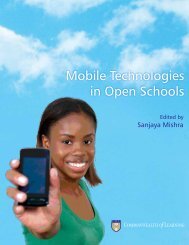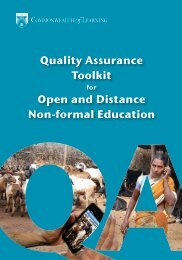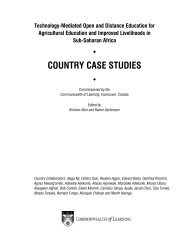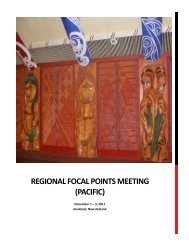unit 6:curriculum implementation - Commonwealth of Learning
unit 6:curriculum implementation - Commonwealth of Learning
unit 6:curriculum implementation - Commonwealth of Learning
Create successful ePaper yourself
Turn your PDF publications into a flip-book with our unique Google optimized e-Paper software.
• What educational experiences can be provided that are<br />
likely to attain these purposes?<br />
• How can these educational experiences be effectively<br />
organised?<br />
• How can we determine whether these purposes are being<br />
attained?<br />
Tyler’s Model<br />
Objectives<br />
Selection <strong>of</strong> learning experiences<br />
Organisation <strong>of</strong> learning experiences<br />
Evaluation<br />
Adapted from Urevbu, A. O. (1985: 20). Curriculum Studies.<br />
The model is linear in nature, starting from objectives and<br />
ending with evaluation. In this model, evaluation is terminal. It<br />
is important to note that:<br />
• Objectives form the basis for the selection and<br />
organisation <strong>of</strong> learning experiences.<br />
• Objectives form the basis for assessing the <strong>curriculum</strong>.<br />
• Objectives are derived from the learner, contemporary<br />
life and subject specialist.<br />
To Tyler, evaluation is a process by which one matches the<br />
initial expectation with the outcomes.<br />
Wheeler’s Model<br />
Wheeler’s model for <strong>curriculum</strong> design is an improvement upon<br />
Tyler’s model. Instead <strong>of</strong> a linear model, Wheeler developed a<br />
cyclical model. Evaluation in Wheeler’s model is not terminal.<br />
Findings from the evaluation are fed back into the objectives<br />
and the goals, which influence other stages.<br />
Module 13, Unit 4: Models <strong>of</strong> Curriculum Design 32



